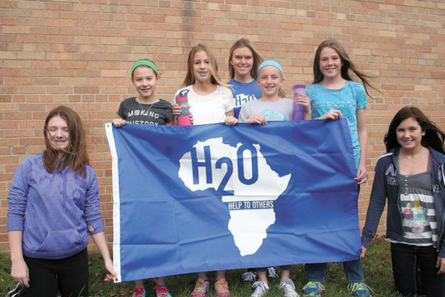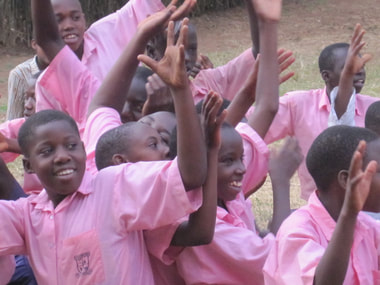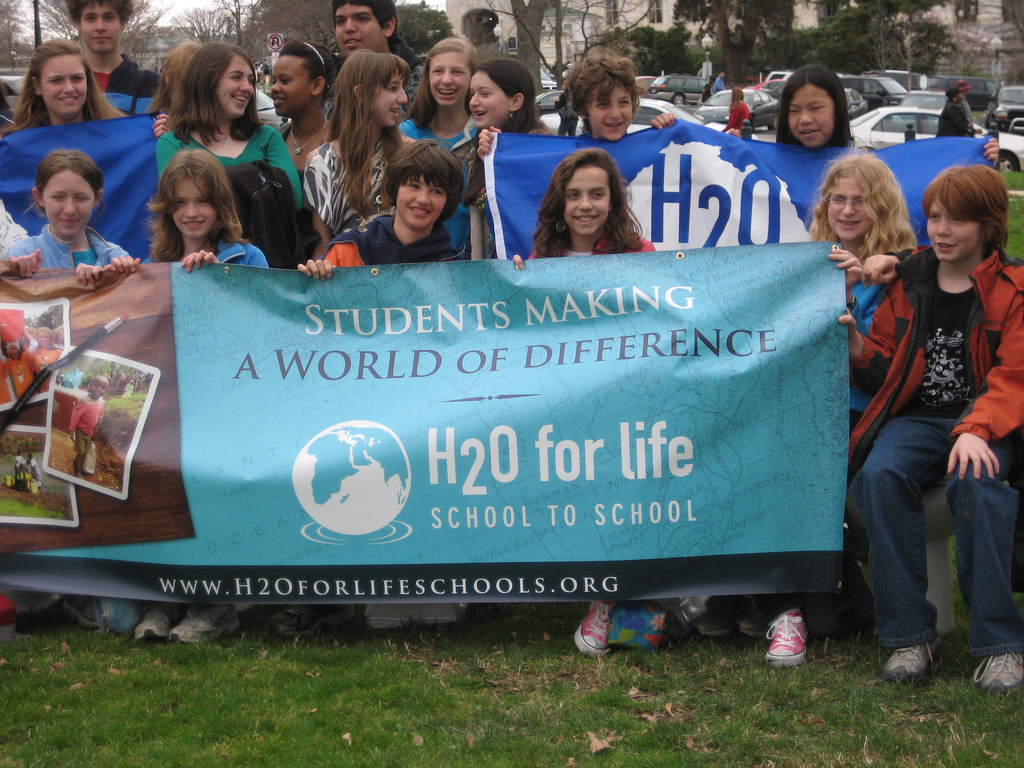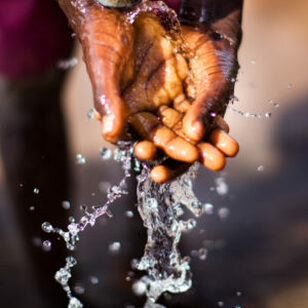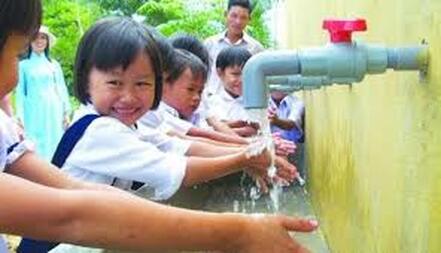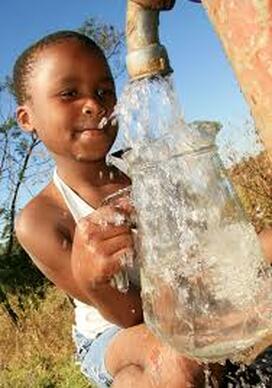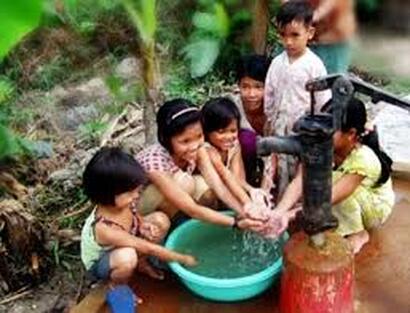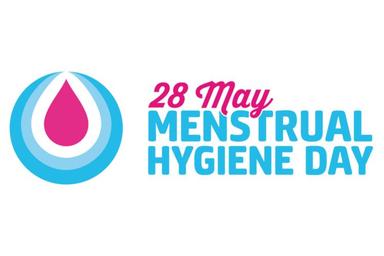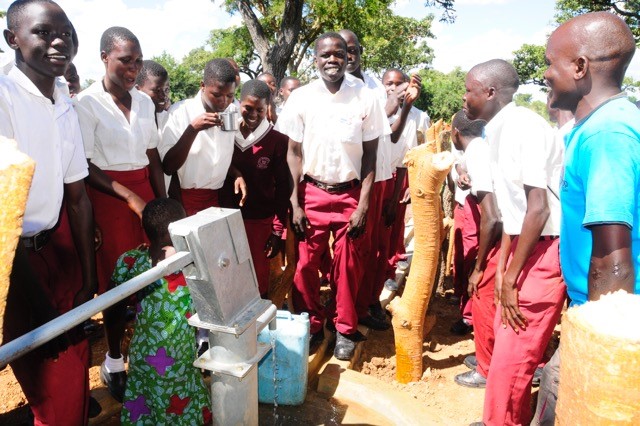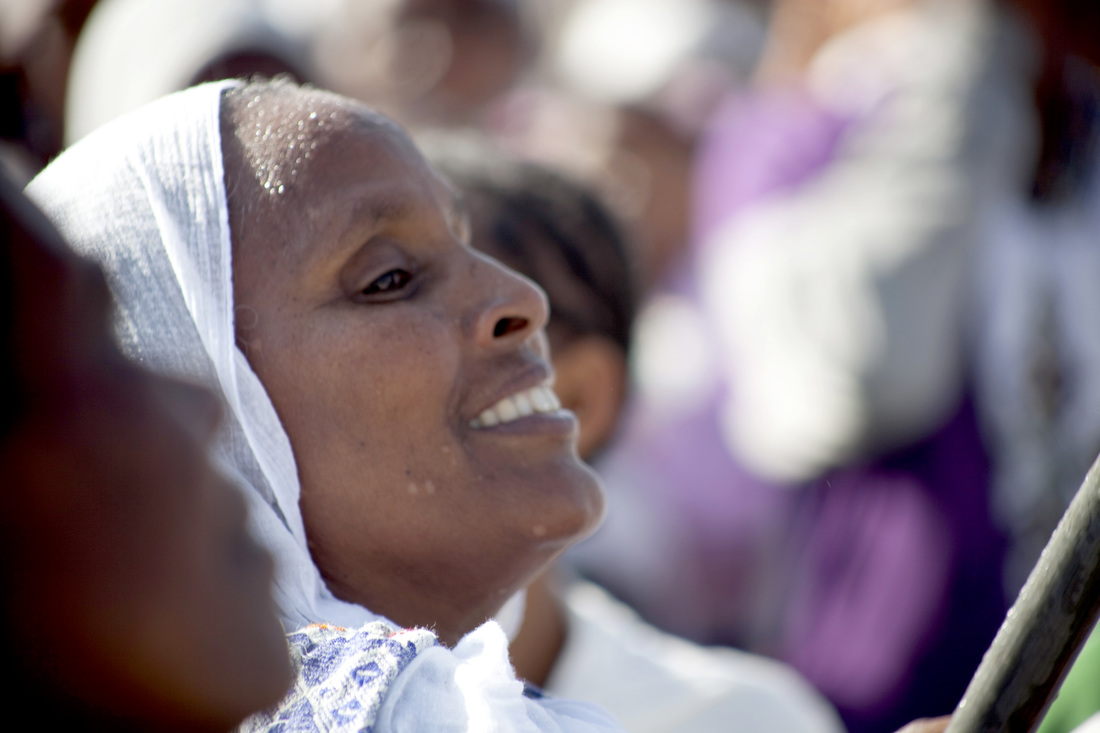THIS PROBLEM IS SOLVABLE — AND YOU CAN HELP SOLVE IT!
|
Engage Youth
There's no time like the present to inspire our next generation of leaders. Over the past 11 years, H2O for Life has engaged more than 1,500 U.S. schools, many for multiple years, impacting over 625,000 youth in the US. They've been inspired to learn about the global water crisis, their global footprint, and through creative action and events have raised $3.5 million dollars for WASH programs in schools around the world. Their funds are matched by trusted implementors; it's a funding model that has made a $7 million-dollar impact on more than 865 global school partners, impacting over 385,000 students in the developing world who now have access to clean water and sanitation. Check out H2O for Life's short video Faiths for Safe Water has partnered with H2O for Life to create a FREE, easy-to-use faith-based curriculum. Check out our multi-faith curriculum here and click through Intro To the Water Crisis |
|
Engage Congregations
Water brings us together. Across a shared table or a project; across houses of worship and across oceans. This resource page offers lots of ideas — from saving water and saving money, to improving global healthcare. |
|
Engage Members of Congress
Any global health or development plan, policy or legislation is guaranteed to fall short of its goals if it doesn't include WASH. Tell them USAID needs to grow it's WASH work. Learn more here. Reach out to your Member of Congress! Click here and here to see how easy it is. (Need help? Contact us.) |
|
7 Ways to Make Every Day Make World Water Day
World Water Day is every March 22. But EVERY DAY should be world water day. Water, our shared symbol, is a most fitting place for people of all faiths and moral courage to unite and lead. Here are 7 steps that will make a difference, near and far: Step 1: Remember this acronym: WASH. WASH is WAter/Sanitation/Hygiene. Access to WASH is the solution. Step 2: Rusty pumps: Let’s make sure our charity work, works. Many houses of worship enthusiastically commit to installing “the village water pump,” but fifty percent of these one-off projects fail. A pump and posing for the photo-op isn’t good enough. We’ve got to dramatically ramp up and provide far wider support to what works, not to what makes us feel good. Step 3: Awareness: The U.S. leads the world in per person water use. In just four days, we use more water here than the world uses oil in a year. We over-water our lawns. We waste food (agriculture is the biggest water user in the U.S.) The average American flushes the toilet five times a day, which comes to almost six billion gallons of clean drinking water, literally going down the toilet, every day. There are plenty of ways to be smarter about our water use. Step 4: Action: Fun, community-building activities that engage youth and congregations also make a difference at home and at your house of worship. We can enrich our experience even more by reaching out to a neighboring church, synagogue or mosque to share with them this opportunity to make a difference, together. Step 5: Support women: Religion has too often been a source of repression and oppression. Supporting sustainable WASH projects is an opportunity to stand in support of all women. Like water, women are the source of life and health around the world. Step 6: Clergy: Let’s encourage our American faith leaders to connect with their international counterparts, because faith leaders in developing countries can influence everything from policies that prioritize WASH development, to changes in hygiene behavior that make the difference between life and death. Step 7: U.S. government: Our government spends just one one-hundredth of a percent of the federal budget on WASH. Any health and development plan, policy or legislation that doesn’t include WASH is guaranteed to fall short of its goals. Because the faith voice is listened to on Capitol Hill, let’s use our voices to remind Members of Congress that no matter how much good work we do in the private sector, no funding and leadership is more influential than U.S. government foreign assistance and including WASH is smart, logical and cost-effective. |
|
Thank you, Meghan Markle, who's giving new voice to the issue of menstrual hygiene.
We've got to start talking about girls. Not having the dignity of access to a basic toilet and hygiene products keeps girls home from school during their period each month. In low-income countries, girls’ choices of menstrual hygiene materials are often limited by costs, availability and social norms. Adequate sanitation facilities and access to menstrual hygiene products are an important part of the solution to keeping girls in school. |
|
Donate to responsible NGOs and FBOs, and before you do...
Make sure you don't contribute to leaving behind that proverbial rusty pump! A number of online organizations provide tools to help you evaluate nonprofit organizations. Here are 5 of them: |
|
Faiths for Safe Water
Faiths for Safe Water is available as a free resource to anyone who believes that water should be the source of health and life for all. Check out lots of faith-based resources here. We are honored to engage a diverse group of faith leaders willing to speak up on behalf of those in greatest need. Know a clergy member who might want to join our informal advisory board? Send them our way (no time commitment required). |


